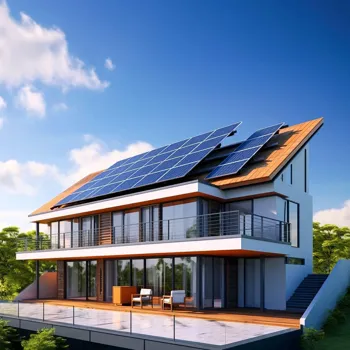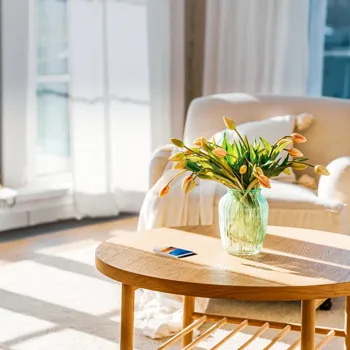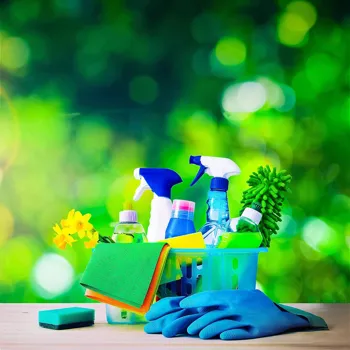Discover 7 Budget-Friendly Eco-Friendly Home Tips! Easy, Effective & Cost-Saving Ways to Go Green! Start Now!
Namaste, readers! Are you looking to make your homes more 'green' but worried about the cost?
Fear not! Being eco-friendly doesn't always mean shelling out big bucks. We've got you covered with seven simple and budget-friendly ways to transform your home into a haven for sustainability.

Get ready to roll up your sleeves and make a difference! It's easier than you think, and your wallet (and the planet) will thank you. Let's dive in and discover how to live a greener lifestyle without emptying your savings account. Small changes can lead to big impact!
Reduce wastage and conserve energy with clever DIY hacks to give back to nature.
Embrace the Power of Natural Light:
One of the easiest and most effective ways to reduce your energy consumption is to maximize natural light. Open your curtains and blinds during the day to let the sunshine in. Clean your windows regularly to ensure maximum light penetration.

Arrange your furniture in a way that doesn't block natural light sources. Consider using mirrors strategically to reflect and amplify light throughout your home. Not only will this reduce your reliance on artificial lighting, but it will also create a brighter and more welcoming atmosphere.
Switching to light paint color for your walls can also lighten up the room without using much light. Natural light lifts your mood, it has benefits!
If you're working from home, position your desk near a window to take advantage of daylight and boost your productivity.
Encourage your family to spend more time in naturally lit areas to reduce energy consumption. Replacing your regular lightbulbs and switches to a smart automated sensor also can save energy especially at night. Using natural light is not just eco-friendly.
By cutting down on energy the environmental load is automatically reduced and you don't have to spend too much during electricity tariff hikes. It’s a win-win situation for you and the environment!
Remember, every little bit counts.
Even small changes in your lighting habits can make a significant difference in your energy bill and carbon footprint. So, open those curtains, let the sunshine in, and start reaping the benefits of natural light today! It's a simple, free, and effective way to make your home more eco-friendly.
And always remember to switch off lights at any cost! This is very easy but very effective.
Switch to Energy-Efficient Lighting:
While natural light is fantastic, there will be times when you need to rely on artificial lighting. When that happens, make sure you're using energy-efficient bulbs. Swap out your old incandescent bulbs for LED (light-emitting diode) or CFL (compact fluorescent lamp) bulbs.

LEDs are the most energy-efficient option, using up to 75% less energy and lasting much longer than incandescent bulbs. CFLs are also a good choice, using about 25-35% less energy and lasting longer too.
While these bulbs may cost a bit more upfront, the savings on your electricity bill will quickly offset the initial investment. Plus, they last for years, so you won't have to replace them as often.
Consider using LED strip lights for decorative lighting or under-cabinet lighting.
These lights consume very little energy and can add a touch of elegance to your home. Use dimmer switches on your lights to control the brightness and save even more energy. Adjust the dimmer depending on the mood and activities like studying or relaxing! Smart bulb options are also available.
They connect directly with your phones and you can control intensity from far away. You may never have to walk to turn off lights.
Don't forget to recycle your old bulbs properly. Many local stores and recycling centers offer bulb recycling programs.
Improper disposal of bulbs can release harmful substances like mercury into the environment. LEDs don't contain mercury, so they are even more environmentally friendly in this respect. Switching to energy-efficient lighting is a simple and effective way to reduce your carbon footprint!
Reduce Water Consumption:
Water is a precious resource, and it's important to conserve it whenever possible. There are several simple things you can do to reduce your water consumption at home. Fix any leaky faucets or pipes immediately. Even a small drip can waste a significant amount of water over time.
Install low-flow showerheads and faucet aerators. These devices reduce the amount of water that flows out of your showerhead and faucets without sacrificing water pressure. This can save you a significant amount of water each month. When washing dishes, don't let the water run continuously.
Fill the sink with soapy water for washing and another sink with clean water for rinsing. Only run your washing machine and dishwasher when they are full.
Consider installing a dual-flush toilet or a toilet tank bank.
These devices reduce the amount of water used per flush, saving you even more water. Collect rainwater in a rain barrel to use for watering your garden or washing your car. Water plants early in the morning or late in the evening to reduce evaporation.
Make sure your garden has properly designed irrigation system, that caters to all water needs. Doing so helps conserve water and you spend very less money in maintaining garden.
Encourage your family to take shorter showers and turn off the tap while brushing their teeth.
Educating your children on the importance of water conservation can instill lifelong habits. Start water conservation at home to protect our planet!
Compost Your Food Waste:
Food waste is a major environmental problem. When food scraps end up in landfills, they decompose anaerobically, producing methane, a potent greenhouse gas. Composting your food waste is a great way to reduce your environmental impact and create nutrient-rich soil for your garden.
You can start a compost bin in your backyard or use a kitchen composter for smaller spaces. Compostable items include fruit and vegetable scraps, coffee grounds, tea bags, eggshells, and yard waste.
Avoid composting meat products, dairy products, and oily foods, as these can attract pests and create unpleasant odors. Mix your food waste with brown materials like dried leaves, shredded paper, or wood chips to ensure proper decomposition.
Turn your compost pile regularly to aerate it and speed up the composting process. In a few months, you'll have nutrient-rich compost that you can use to enrich your garden soil or pot plants. Consider composting with neighbors to share the benefits and reduce individual effort.
Not only will composting reduce your food waste, but it will also save you money on fertilizer for your garden. It’s a sustainable way to manage waste from your home!
Composting is a surprisingly easy and rewarding way to reduce your environmental impact and create a healthier garden.
So, start turning your kitchen scraps into valuable compost today! By segregating and then composting the waste, you will find the amount of waste has been significantly reduced, thereby saving time!
Reduce, Reuse, Recycle:
The three Rs – Reduce, Reuse, Recycle – are fundamental principles of sustainability. Reducing your consumption is the most effective way to minimize your environmental impact. Before buying something new, ask yourself if you really need it.
Look for products with minimal packaging or buy in bulk to reduce waste. Reusing items is another great way to reduce waste. Use reusable shopping bags, water bottles, and coffee cups. Repair broken items instead of throwing them away. Get creative and find new uses for old items.
Turn old t-shirts into cleaning rags or use glass jars for storage and plant pots.
Recycling is an important way to divert waste from landfills. Familiarize yourself with your local recycling guidelines and make sure to sort your recyclables properly. Recycle paper, plastic, glass, and metal.
Consider using recycling app for ease. Support businesses that use recycled materials and offer recycling programs. Encouraging the recycle culture at home and at your local level to improve environment.
Always remember that recycling saves energy, conserves natural resources, and reduces pollution.
By embracing the three Rs, you can significantly reduce your waste and contribute to a more sustainable future. So, reduce your consumption, reuse what you have, and recycle whenever possible.
It's a simple and effective way to make a big difference. This ensures the planet can sustain the coming future.
Choose Eco-Friendly Cleaning Products:
Conventional cleaning products often contain harsh chemicals that are harmful to the environment and your health. Switch to eco-friendly cleaning products that are made with natural, plant-based ingredients.

Look for products that are biodegradable, non-toxic, and free of phosphates, chlorine, and artificial fragrances. You can also make your own cleaning products using simple ingredients like vinegar, baking soda, lemon juice, and essential oils.
These DIY cleaners are just as effective as store-bought products and are much cheaper and safer for your family and the environment. Use vinegar and water to clean windows and mirrors. Use baking soda to scrub sinks and bathtubs.
Use lemon juice to disinfect surfaces.
Essential oils like tea tree oil, lavender oil, and lemon oil have antibacterial and antifungal properties and can be added to your cleaning products for extra cleaning power. Avoid using disposable wipes and paper towels. Use reusable cloths and sponges instead.
Wash your cleaning cloths regularly to keep them clean and prevent the spread of germs. Using eco-friendly cleaning products is a simple way to reduce your exposure to harmful chemicals and protect planet.
By making the switch to eco-friendly cleaning products, you can create a healthier and more sustainable home for yourself and your family. So, ditch the harsh chemicals and embrace the power of natural cleaning.











